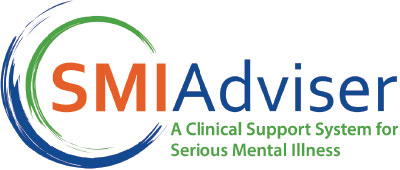SMI Adviser to Launch Training Curriculum for Digital Health Navigators
Abstract
Digital health navigators can help patients and mental health care professionals optimize their use of digital tools as part of a treatment regimen.

As part of her clinical duties at Boston’s Beth Israel Deaconess Medical Center, Erica Camacho, M.S., trains patients how to use an important but sometimes overlooked wellness tool: their mobile phone. Camacho is one of a growing group of mental health professionals known as digital navigators.
As the availability of digital tools in mental health care continues to grow, many patients and clinicians have become adrift in the vast sea of digital options. The digital health navigator can be seen as a beacon that safely brings together the patient, clinician, and appropriate health technology.
Other medical fields have dedicated staff who oversee technology, said John Torous, M.D., director of the Digital Psychiatry Division at Beth Israel Deaconess Medical Center, citing radiology technicians as one example. But in mental health, the burden of learning about and incorporating digital health into practice often falls on the psychiatrists’ shoulders.
This can be problematic, as digital literacy is lacking among both patients and physicians, noted Torous, who is SMI Adviser’s technology specialist. “Today’s digital divide isn’t about access; most people—even people with serious mental illness—have access to a smartphone,” he said. “But far fewer have the foundational skills needed to effectively use all their phone’s features.”
SMI Adviser, APA’s Clinical Support System for Serious Mental Illness, offers free CME/CE-certified education, expert consultations, and resources to help clinicians and staff provide evidence-based care for people with serious mental illness. The service is funded by the Substance Abuse and Mental Health Services Administration.
Though the exact duties of a digital navigator can vary depending on a location’s needs and resources, Torous said the position has three primary roles:
Evaluate mental health mobile apps and provide recommendations to clinicians.
Help patients set up and troubleshoot newly installed apps or videoconferencing programs.
Review and aggregate data collected from digital tools, including mood or sleep trackers, for both clinician and patient use.
At Beth Israel’s Digital Psychiatry Clinic, Camacho helps patients install and operate a range of mobile apps to aid in therapy and medication management. Chief among these is mindLAMP, a digital platform that collects survey data and passive tracking information (such as steps and sleep) from patients’ phones.
“It’s fascinating to see the growth of these patients as they start to master the apps and realize the full potential of their phone,” Camacho said. She said many patients will ask about tools to help them track other conditions such as diabetes.
“We’re not only giving patients tools for their health; we are giving them digital skills that they can use all the time,” Camacho said.
Torous and his team have conducted some training demonstrations with other groups, but they’re hopeful this increasingly essential position might really take off with the help of an official training curriculum that they developed along with SMI Adviser. The Digital Navigator Course is divided into five modules:
Core smartphone skills (how to set reminders, create events, create playlists, and more)
Basic tech troubleshooting (how to recover passwords, update settings, switch networks, and more)
Mobile app evaluation (how to find an app’s privacy policy, understand data collection, determine ease of use, and more)
Clinical terminology (understanding diagnostic criteria, HIPAA guidelines, and more)
Engagement techniques (how to be transparent with patients and build trust)
Each module is interactive and includes case presentations, problem-solving, and lots of skills-based practice, said Camacho, who helped develop thr curriculum and has taught some classes. The curriculum is designed to be offered in five two-hour classes (one hour of in-person engagement followed by one hour of virtual learning), but Camacho said that it can be presented entirely virtually if needed.
“We designed this curriculum to be as flexible as possible, both in how you take it or who should take it,” Camacho said. A digital health navigator role could be assumed by a variety of personnel in a part-time or full-time manner, including psychiatry trainees, peer support specialists, or even experienced clinicians who want to broaden their expertise.
“If a clinic can’t afford to create a new position [for a digital health navigator], the duties can be split up among existing staff,” she added. Camacho noted that taking on digital navigator duties can enable staff who typically do not engage directly with patients an opportunity to do so. ■



